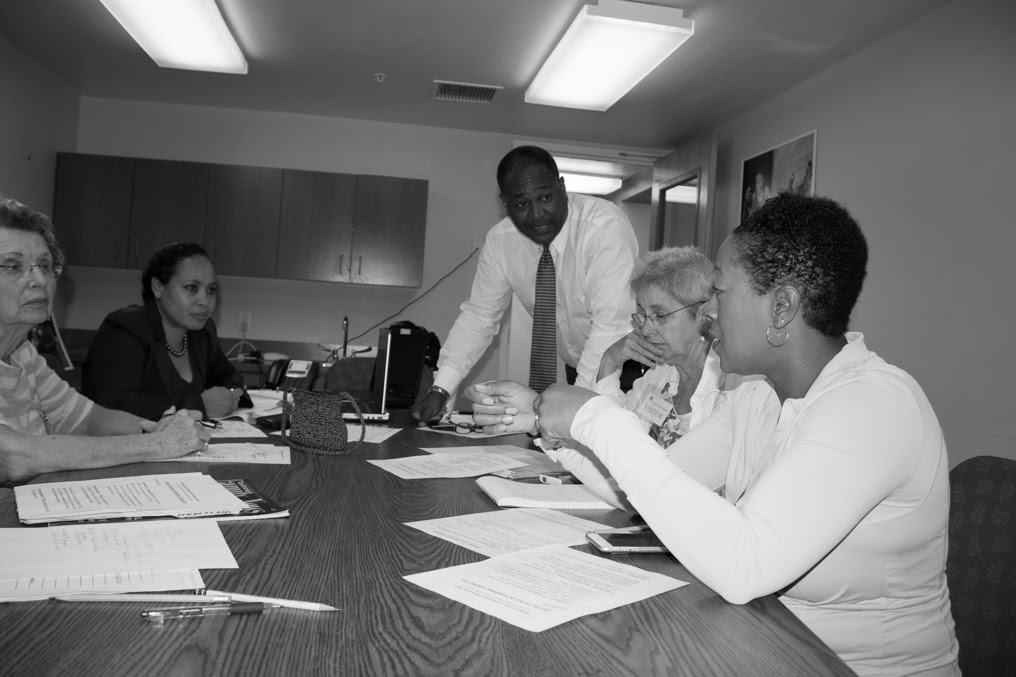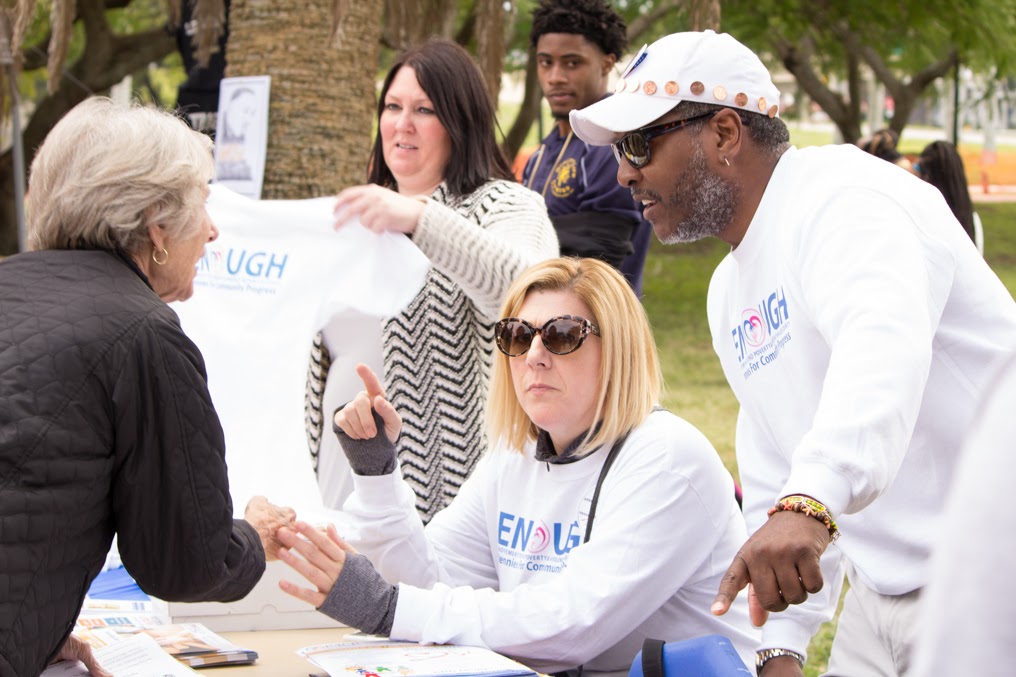In our latest Community Changemakers, Michelle Guerin, Field Representative for the Southwest Chapter of the South Florida AFL-CIO, sits down with former Ironworker, Larry Aguilar, to talk about labor, apprenticeships, immigration reform and local community work that’s helping provide new opportunities for disenfranchised youth in the Ft. Myers area.
MG: Larry, thank you so much for taking the time to speak with us.
LA: Thank you Michelle and this is quite an honor for me.
MG: You are a respected leader in the community and active in so many social justice issues that are important to working families. Can you tell us a little bit about your role with Quality Life Center?
LA: I serve as the Public Relations and Communications Director for the Quality Life Center. Our mission is to provide a better quality of life for our community through academic enrichment, performing arts, career finding/training courses, social services, counseling and mentoring. From ages as young as two years old to adults, we help support the most economically disadvantaged members of our community in a positive way. Currently, we are hoping to expand this philosophy through the Pennies For Community Progress (P4CP) program, working hand in hand with Labor and other organizations to reach out to more communities in SW Florida.
MG: What path brought you to this role? What are your roots? How has organized labor influenced you?
LA: Well Michelle, I actually like to remind people that if it were not for organized Labor, I truly wouldn’t be where I am today. Organized labor helped me in my youth to learn the skills to provide a quality life for both myself and my family. At the age of 27, I was married with a seven year old daughter and another one on the way. As I started looking for options to attend college, I was approached with the opportunity to work as an Ironworker in Boston. That Ironworker apprenticeship program taught me skills that even today, even though I am much, much older and it’s been a while since I’ve worked hands on in the labor trades, I feel like I can still do most of the same work. These are skills that I’ve carried with me my entire life. This job afforded me the means to pursue the higher education I sought.
MG: What community issues really motivate your passion to help others? I’ve heard you talk about your passion in pushing forward comprehensive immigration reform. How have you used your partnerships with the community and organized labor to help see this movement for immigration reform move forward?
LA: You know Michelle, in 1966 my parents and family came to this country from Cuba. After my time as an Ironworker, I continued on in my career path in 1990 to pursue a profession in banking, staying on this path for almost two decades. I would have families from all across Central and South America come to my bank, but they were unable to open up an account because they lacked the necessary documents. These were hard working families that I knew from our community who deserved just as much as anyone else – to place the little they earned, many from migrant jobs, in a safe place for their family. I saw my family story in every one of them that I had to turn away. After learning so much about the importance of taking action and standing up for our fellow workers through my years in Labor, I knew that even in my new profession I could still make a difference. So with the blessing of my employer, I reached out to local organizations to help me provide those immigrant families with the paperwork they needed to not only open bank accounts but to begin the process of becoming a naturalized citizen.
 MG: In what way are you involved with immigration reform today in the community?
MG: In what way are you involved with immigration reform today in the community?
LA: In collaboration with the Retail, Wholesale, and Department Store Union (RWDSU) and the local Labor Council, we have plans to start holding immigration clinics at the Quality Life Center. This is a great opportunity to offer a service to help families with a path forward regarding their immigration status. When working hand in hand with Labor, we are able to also talk about the important issues these immigrant families face in the workplace. It’s no secret that some of the worst worker abuses on the job are happening to those members of our community that are undocumented. Many times, those workers feel powerless to do anything about abuses on the job, but regardless of your immigration status you still have rights. It’s important to empower those workers with the knowledge that they can do something about it.
MG: Recently the Southwest Florida Chapter of the South Florida AFL-CIO held a job fair at the Quality Life Center highlighting opportunities in apprenticeships. As a former apprentice why do you think this program is important to offer in our community?
LA: Look, the reality is that apprenticeships not only help provide an alternative to college and train you in a new skill, but the jobs that you are then skilled to work in are good union jobs. These jobs pay a livable wage and provide benefits for you and your family. Southwest Florida has some of the highest rates of unemployment in the state, and in our local Ft Myers areas like East Dunbar, the rate is somewhere around 17%, with some saying it’s even higher. Many of those who do have jobs in the community are employed in low paying service industry jobs. Apprenticeships programs could be life changing for not only the economics of the local worker but for our community as a whole. It’s very exciting and we can’t wait for the next one.
MG: Well thank you so much Larry for taking the time to share your personal story and for all of the great work the Quality Life Center is doing in the community!
LA: The pleasure was all mine Michelle! I’d like to encourage your readers to visit our website qualitylifecenter.org to get more information on how you can get involved, and to join us for one of our workshops or events. Together, we can make a difference in our communities and help raise up the quality of life for working families across Florida.

